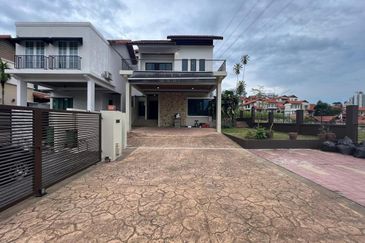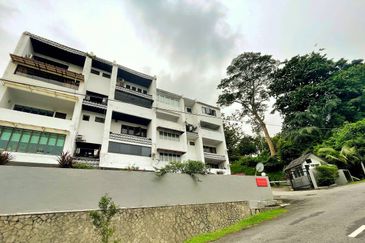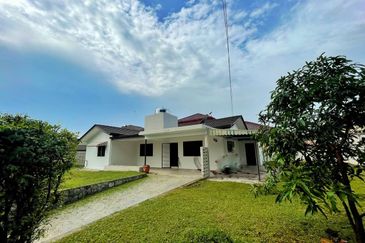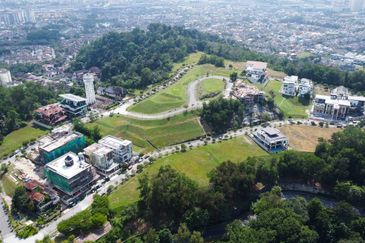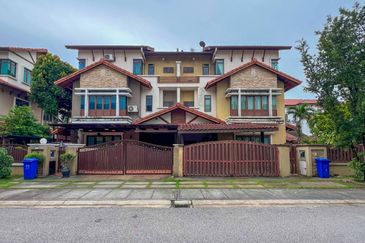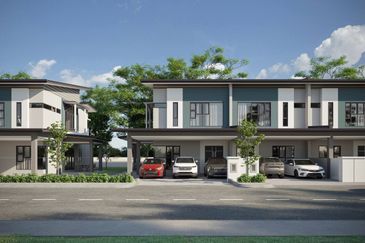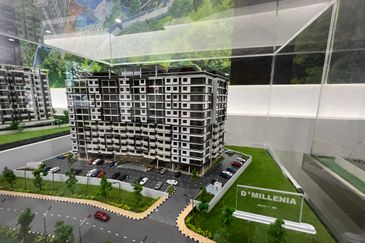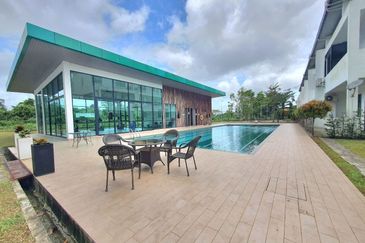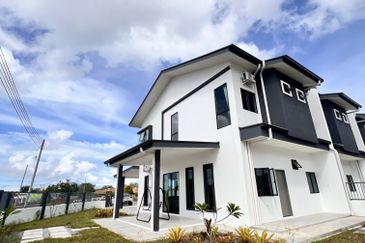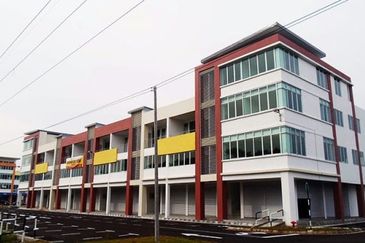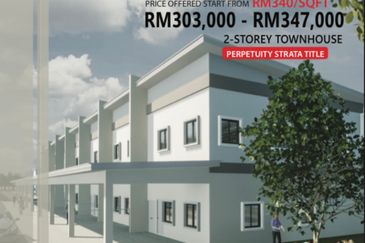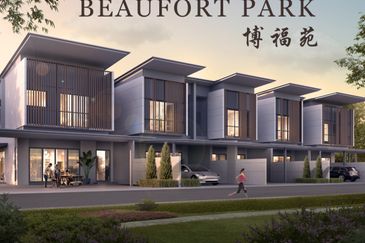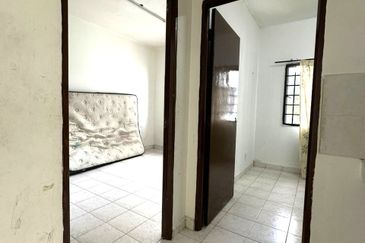
There are bound to be problems and issues when you live within a strata community. Some of these challenges are more commonly encountered than others. What are they and how do you deal with them?
Being part of a strata residential community can be a boon or a bane, depending on the kind of fellow-residents you get, or you are. Granted, most of us try our best to love our neighbours as ourselves; yet, certain quandaries seem to beset strata dwellers rather commonly.
“You must know and be aware of the kind of problems you could face in community living, whom you will be up against, and how you can go about resolving the issues,” Chur Associates founder and managing partner Chris Tan (pictured) tells EdgeProp.my.
“Hence, homeowners must equip themselves first with knowledge about their rights as property owners, so that they are able to take the right action when conflicts arise with developers or among fellow property owners,” adds Tan, who was a judge of EdgeProp
Malaysia’s Best Managed Property Awards 2018 and a speaker at the EdgeProp.my
Symposium on Excellent Property Management 2018.
Here are the five most common issues in strata living that owners should take note of, according to Tan.

1 Service charge and sinking fund payments
First on the list has to do with money. It may not be the most cordial subject to broach, but it is inevitable as service charge collection is one of the most common issues in strata living. You have probably heard of homeowners who refuse to pay their maintenance fees.
So, how do you tackle this problem?
Tan says the property management should always keep owners informed on payment updates and do timely follow-up with them. It is also important to give the defaulters notice promptly and suspend their usage of common property immediately [upon default].
On top of that, make it convenient to pay such as online facilities or standing instructions to help and encourage owners to keep up with their maintenance fees, he adds.
How to resolve a payment dispute in strata living
Owners can…
Step 1 – Seek clarification from the management to understand the payment dispute verbally or in writing.
Step 2 – Start a negotiation process with the management to address the dispute for a win-win solution.
Step 3 – Refer to the Strata Management Tribunal.
Step 4 – Refer to civil court.
Property management can…
Step 1 – Seek clarification from the owner.
Step 2 – Exercise the power granted
by law to enter into an instalment payment programme.
Step 3 – Refer to the Strata
Management Tribunal.
Step 4 – Refer to the Commissioner
of Building.
Step 5 – Refer to civil court.

2 Leakage from adjoining unit
Leakage from ceilings and walls can be very distressing. Left unattended, it can even pose a danger. Besides giving space for mould growth, it can cause damage to the property and lead to more severe mechanical and electrical problems.
“The issue should be addressed as soon as possible and not until it escalates. Timely maintenance of common property is also required to prevent leaks,” counsels Tan.
The source of the leakage can arise from another owner’s property or the common property, but the claiming process is similar.
Inter-floor leakage claiming process
The party affected can…
Step 1 – Clarify with the resident/management to understand the cause of the leakage.
Step 2 – Negotiate a solution with the party responsible for the leakage.
Step 3 – If direct solution fails, lodge a complaint with the management body.
Step 4 – The management body is to conduct an inspection to ascertain the cause of leakage.
Step 5 – Once the responsible party is identified, the management shall instruct him/her to fix the leakage.
Step 6 – If the responsible party refuses to do so, the owner/management can proceed with the repair and start a claim with the Strata Management Tribunal.
Step 7 – Refer to the Commissioner of Building for execution.

3 Handover of management from developer to JMB/MC
According to the Strata Management Act 2013, developers shall hand over the management of a strata residential property to the owners before the developer’s management period expires (within 12 months from vacant possession).
The items that developers are required to hand over include the balance in the maintenance and sinking fund account and all records relating to and necessary for the maintenance and management of the building and common area.
In order to ensure a smooth and transparent transition, Tan urges developers to conduct a pre-handover education with the owners and provide a checklist for the convenience of the incoming management body.
“Meanwhile, the owners should maintain a good communication with the developer after the handover to ensure proper knowledge transfer,” he says.
How to resolve a dispute in the handover process
Joint management body (JMB) or management corporation (MC) can…
Step 1 – Clarify with the developer any concerns in the dispute.
Step 2 – Start a negotiation process to address
the dispute for a
win-win solution.
Step 3 – Refer to the Strata
Management Tribunal.
Step 4 – Refer to the
Commissioner of Building.
Step 5 – Refer to the relevant ministry.

4 Participation in general meetings
In communal living, the key to good property management is participation. Owners should participate in the general meetings to keep tabs on the performance of their property management.
However, many strata property owners do not realise that good property management requires strong participation from the owners.
“To encourage participation in general meetings, the property management should serve an early notice on the requirement to participate as well as the fee payment status before the official notice of the meetings.
“It is also advisable to publish an infographic to accompany meeting notices to educate the owners on the dos and don’ts as participants,” Tan suggests.
How to ensure meetings are smoothly conducted
Step 1 – Ensure that the meeting notices and service of the meeting notices are in order.
Step 2 – Clarify with the management on the requirements and participation process.
Step 3 – Negotiate for a solution to ensure participation.
Step 4 – Refer to the Strata Management Tribunal if there is a dispute.
Step 5 – Refer to the Commissioner of Buildings for execution.

5 Late issuance of strata title
A strata title is the document that prove one’s ownership of a strata property, but some owners face the problem of late issuance of strata titles. Tan says developers should keep the owners informed of the application process and progress of the issuance of the title while the owners should keep tabs on the matter so they would understand if there is any potential delay.
What to do if the issuance of strata title is delayed
Owners can…
Step 1 – Seek clarification with developer and the authorities.
Step 2 – Negotiate for a solution.
Step 3 – Check with the Tribunal for Homebuyer Claims.
Step 4 – Check with the Housing and Local Government Ministry.

This story will appear in the EdgeProp.my pullout on July 13, 2018. Download EdgeProp.my pullout here for free.
TOP PICKS BY EDGEPROP
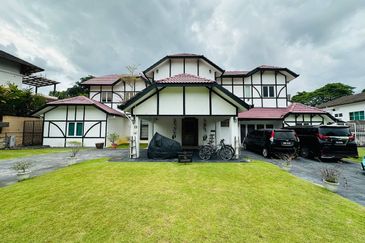
KGSAAS Golf Club, Seksyen 13
Shah Alam, Selangor
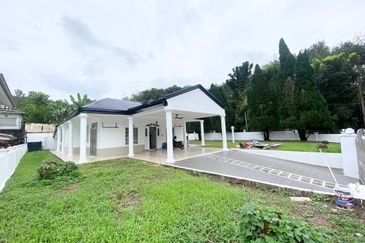
Kelab Golf Bukit Beruntung
Hulu Selangor, Selangor

Kipark Apartment ( KIP Villa Indah )
Tampoi, Johor


